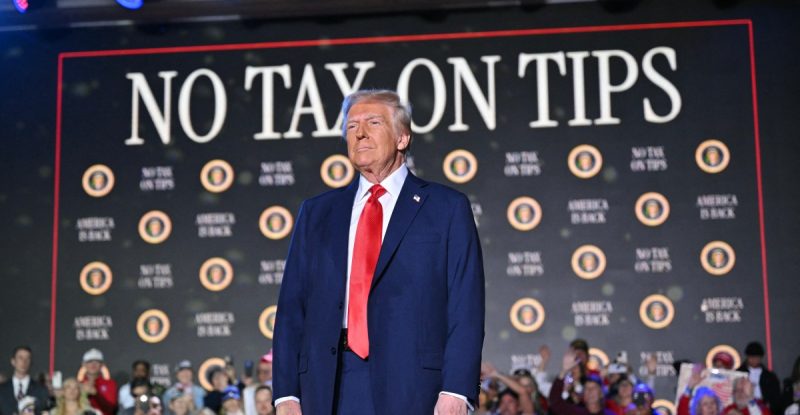
The recent Senate passage of the “No Tax on Tips Act” has garnered bipartisan support, fueled by its populist appeal. It promises relief for low-wage service workers, making it politically expedient to endorse. However, a closer look reveals a less appealing reality. This seemingly worker-friendly policy is essentially a substantial tax break for businesses, costing the federal government billions annually. It incentivizes employers to lower base wages, making workers even more reliant on fluctuating tips. This approach fails to address the core issue: the significantly low subminimum wage for tipped workers.
The subminimum wage, currently set at a paltry $2.13 per hour, forces tipped employees to rely heavily on tips to reach a livable wage. This creates instability, particularly during slow seasons, when tips are scarce, leaving these workers struggling to make ends meet. Furthermore, the tax exemption wouldn’t even benefit all low-wage workers; a significant portion already falls below the income tax threshold, rendering the policy useless for them. The vast majority of low- and moderate-wage earners don’t receive tips at all, so the proposed legislation would be ineffective for the majority it claims to help.
The historical context of the subminimum wage reveals its flawed origins. Initially intended to provide opportunities for workers with disabilities, it was later amended to include tipped workers, fundamentally altering the nature of tipping. What was once a gesture of gratitude became a crucial component of income, leaving workers vulnerable and perpetually underpaid. The subminimum wage hasn’t been raised since 1991, further exacerbating the problem.
The current median wage for waiters, for example, highlights the inadequacy of the system. While the median is around $33,760, the bottom 10 percent earn a meager $18,000 annually. Considering the standard deduction amounts, the tax break from the “No Tax on Tips Act” provides minimal relief. A more effective solution lies in tackling the root cause: the subminimum wage itself.
Progressive organizations like One Fair Wage are actively campaigning to eliminate the subminimum wage and establish a single, fair minimum wage for all workers. Data from states that have already abolished the subminimum wage shows a lower poverty rate among tipped workers. This evidence strongly suggests that eliminating the subminimum wage would be a far more effective and equitable approach to improving the financial well-being of low-wage workers.
Instead of focusing on a band-aid solution like eliminating taxes on tips, Congress should consider more impactful measures. These include expanding the standard deduction to provide a meaningful tax cut for all low-wage workers, abolishing the subminimum wage entirely, and finally raising the federal minimum wage. A substantial wage increase is long overdue and represents a far more effective and just solution to the problem of underpaid workers than a temporary and ultimately flawed tax break.









